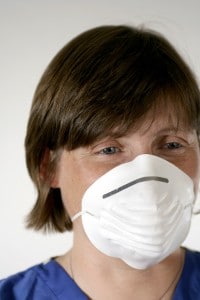Beating the Bugs During Cold and Flu Season
No one likes being sick over the holidays, so it’s time for a round-up of popular tactics to beat colds and flu. Which remedies actually help if you do get sick? One caveat: always discuss treatments and therapies with your doctor first!
Staying Healthy
Take a multivitamin? As their fine-print labels declare, multivitamins and supplements are “not intended to cure or prevent any disease.” Research is mixed on whether popular remedies such as Vitamin C, Echinacea and Zinc actually shorten the duration of a cold (Source: WebMD). While multivitamins can help round out an imperfectly balanced diet, they won’t necessarily protect you from the flu (Source: WebMD).
Try nasal irrigation? Nasal rinses relieve congestion by loosening and removing mucus, allergens and irritants. Using a neti pot or a similar tool for flushing the sinuses with saline solution at the onset of symptoms (but not as a long term practice) seems to be the most beneficial strategy. If you do get sick, nasal washing is an effective alternative or complement to decongestants (Source: WebMD).
Hand-washing vs. hand sanitizer? Frequent hand-washing improves the odds of wellness through cold and flu season, provided it is done correctly. Use soap and clean running water to lather up, scrubbing all surfaces of the hands including under fingernails for at least 20 seconds, then rinse and dry with a clean towel. Hand sanitizers of at least 60% alcohol are adequate when soap and water is not available, although they are not appropriate for cleaning visibly dirty hands (Source: CDC).
Get a flu shot? Like many health questions, this one comes with some controversy. Though flu shots are widely recommended, there are also vehement criticisms of the vaccination, and not everyone can take it in any case. The CDC gives detailed information about this year’s influenza season to answer your questions about the vaccination.
Home Remedies
Do chicken soup, boiled lemons and herbal tea really help? Chicken soup acts as an anti-inflammatory and temporarily stimulates mucus movement. Clear broth, juice, boiled lemons with honey and plain old water fight a cold both by keeping the body hydrated and by loosening congestion. A note of caution: though hot liquids feel soothing to a sore throat, stick with caffeine-free herbal teas, as caffeine will worsen dehydration (Source: Mayo Clinic).
Feed a cold, starve a fever? Old adages had to come from somewhere, but the folk wisdom behind the advice to feed a cold and starve a fever may be rooted in our natural tendencies. Soup and tea tend to bring comfort to cold-sufferers, and fevers tend to sap normal appetites. The bottom line is that while you’re sick, you should eat when you’re hungry and provide your body with fuel for getting well (Source: Duke Health).
Post-illness Clean-up
Boil your toothbrush? My web research found an array of opinions on the question of whether you can reinfect yourself with your toothbrush, ranging from impassioned testimonials of repeated bouts of illness on the one hand to clinical explanations of how antibodies build up immunity to various strains of sickness on the other. However, regardless of which argument convinces you, boiling your toothbrush may damage the bristles, so if you are concerned about reinfection, it may be best to simply replace it after illness.
Sanitize your home? If you share your home with family or roommates, obviously you’ll want to reduce the chances of spreading sickness around. Wash hand-towels and bedding and use disinfectant wipes and sprays to kill germs in kitchens and bathrooms. Remember easy-to-miss spots like trashcans, keyboards, phones, knobs, handles, faucets and light switches.
Share your seasonal wellness strategies below!
